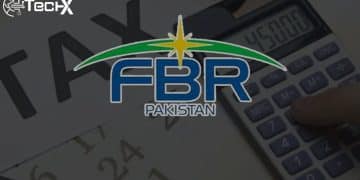The Federal Board of Revenue has taken a bold step by raising the reward ceiling for Inland Revenue officials from eighteen to twenty-four salaries each year. This change honors officers who show strong effort and honest work. The amendment brings new energy into the reward system, giving hope to many who have served with quiet dedication and steady commitment to their duties across the country.
Amendments to Reward Rules Gain Approval
These updates were approved under the Inland Revenue Reward Rules 2021, allowing a higher limit for meritorious rewards. The new plan also introduces a fair evaluation method for ex-cadre officers and staff. This aims to create equality across different ranks and ensure that every hardworking team member receives proper recognition. The approach honors tradition while looking toward a more balanced future.
Decisions Finalized in Board-in-Council Meeting
The decisions took shape during the third meeting of the Board-in-Council for fiscal year 2025-26. The gathering took place at the FBR Headquarters in Islamabad, where senior leaders joined under the chairmanship of the FBR Chairman. Three members were excused, yet the meeting continued with unity. Together, the officials shared thoughtful views and worked toward creating a smoother, clearer reward process.
Unanimous Support for Higher Reward Ceiling
Sources shared that the Board approved the increase in the maximum reward limit without hesitation. All members supported raising the ceiling to twenty-four salaries per financial year. This amendment applies directly to employees included under Rule Six. The decision reflects appreciation for those who spend long hours ensuring that tax processes remain fair, efficient, and helpful for the nation’s progress.
New Evaluation Method for Officers and Staff
The meeting also reviewed the proposed evaluation method for different ranks. The Member Admin and HR explained that the updated system would place ex-cadre officers and staff into performance groups. These groups would guide quarterly reward decisions. A weighted system, involving commissioners and committees, aims to ensure fairness. The structure blends old wisdom with fresh thinking to create a just process.
Also Read: PTA Warns AI Plans May Fail Without Faster Internet
Discussion on Weightage and Assessment Process
Some members suggested reviewing the weightage given to the Assessment Committee. However, most, including the Chairman, supported the procedure as presented. The Board agreed that the new system should move fully into the digital space. PRAL received the task of preparing and launching the IT-based framework within seven days. This shift brings modern tools into a long-standing system, strengthening clarity and trust.
Customs Reward Rules Require No Changes
The Board noted that the Customs Reward Rules already allow rewards equal to thirty-six months of basic salary. Because of this, no changes are needed on that side. The focus remained on Inland Revenue, where the new structure will help appreciate officers who bring strong discipline and steady performance. This balance keeps each department aligned with its own reward tradition.
Future Discussion Planned for Cadre Officers
While the Board did not favor removing cadre officers from the reward framework, it agreed to discuss exceptional performance rewards for them in the next meeting. This shows that the leadership values both structure and fairness, aiming to create a complete plan that respects all officers. The door remains open for future improvements, blending old practices with new hopes for better service.
















